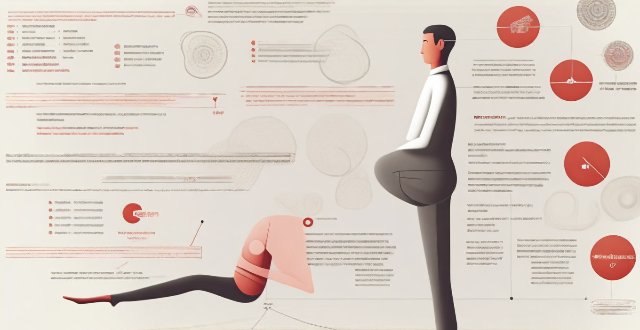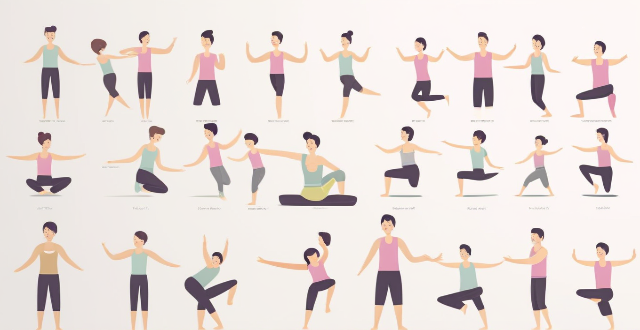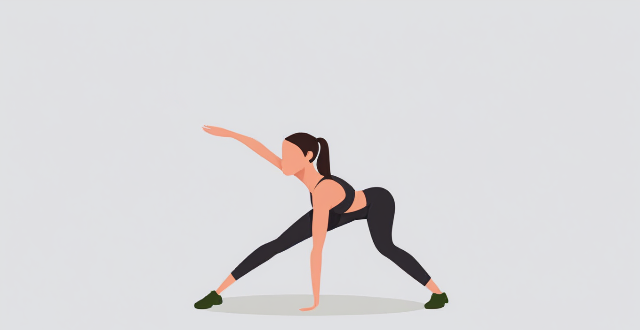Body Stress

What are some natural remedies for stress relief ?
Stress is a common problem that affects people of all ages and backgrounds. While there are many ways to manage stress, some people prefer to use natural remedies instead of relying on medication or other treatments. Here are some natural remedies for stress relief: 1. Exercise: Regular exercise can help reduce stress by releasing endorphins, which are natural mood boosters. Even a short walk or jog can make a big difference in your overall well-being. 2. Meditation: Meditation is a popular way to reduce stress and improve mental clarity. It involves focusing on your breathing and clearing your mind of distractions. There are many different types of meditation, so you can find one that works best for you. 3. Yoga: Yoga combines physical exercise with mindfulness and relaxation techniques to help reduce stress and improve overall health. Many yoga classes also include music and aromatherapy to further enhance the experience. 4. Massage therapy: Massage therapy can help relieve muscle tension and promote relaxation by stimulating the release of endorphins and reducing cortisol levels in the body. 5. Aromatherapy: Essential oils such as lavender, peppermint, and chamomile have been shown to have calming effects on the brain and body, helping to reduce stress and anxiety. 6. Herbal teas: Herbal teas like chamomile, ginger, and lemon balm contain compounds that have been shown to have anti-inflammatory and calming effects on the body. 7. Deep breathing exercises: Deep breathing exercises involve taking slow, deep breaths through your nose while focusing on your breath. This helps to calm your mind and relax your body. 8. Spending time in nature: Being surrounded by nature has been shown to have a positive impact on mental health and reduce stress levels. Taking a walk in the park or going for a hike can be a great way to de-stress after a long day at work or school.

Are there any breathing techniques that can help reduce stress ?
Breathing techniques are a simple yet powerful tool for reducing stress levels and promoting relaxation. By practicing these techniques regularly, you can improve your overall well-being and reduce the negative effects of stress on your body and mind. Some effective breathing techniques for stress reduction include deep breathing, diaphragmatic breathing, alternate nostril breathing, and box breathing. These techniques help to increase oxygen flow to the brain, relax the body, balance the left and right hemispheres of the brain, and slow down the heart rate. Remember to focus on your breath and try to clear your mind of any distractions while practicing these techniques.

Can stress impact a woman's ability to conceive ?
The text discusses the potential impact of stress on a woman's ability to conceive, detailing how stress can lead to hormonal imbalances that affect menstrual cycles and ovulation, decreased sex drive, impaired egg quality, and difficulty maintaining pregnancy. It also provides coping strategies such as mind-body techniques, exercise, building a support system, and making lifestyle changes to manage stress levels and potentially improve fertility.

How does meditation help in reducing stress levels ?
Meditation is a practice that helps in reducing stress levels by calming the mind and body, improving concentration, promoting emotional health, increasing self-awareness, and enhancing mindfulness. It is a powerful tool for managing stress effectively and leading a happier, healthier life.

How can I reduce stress in my daily life ?
The article provides several tips on how to reduce stress in daily life, including identifying the sources of stress, practicing mindfulness and meditation, exercising regularly, eating a healthy diet, getting enough sleep, and connecting with others. It emphasizes the importance of taking steps to manage stress and improve overall well-being.

What role does sleep play in managing stress ?
Sleep is crucial in managing stress by regulating hormones, improving cognition, promoting emotional stability, offering physical health benefits, and enhancing quality of life. Prioritizing sleep is key for effective stress management.

Is yoga an effective method for stress relief ?
Yoga is a popular method for stress relief, offering physical, mental, and emotional benefits. Research supports its effectiveness, and incorporating yoga into your routine can significantly reduce stress levels. Consistency and personalization are key to experiencing its full benefits.

What role does stress play in sleep disturbances and how can it be managed ?
Stress can significantly impact sleep quality by causing difficulty falling asleep, frequent awakenings, light sleep, and early morning awakenings. Managing stress through relaxation techniques, regular exercise, healthy eating habits, a consistent bedtime routine, a comfortable sleep environment, limited screen time, and seeking professional help when needed can improve sleep quality and overall well-being.

How does stress management contribute to sports health maintenance ?
Stress management is crucial for athletes' physical recovery, immune function, mental clarity, emotional well-being, consistency in performance, and competitive advantage. By managing stress effectively, athletes can improve their overall health and achieve success in their sport.

How does stress affect women's mental health ?
This text discusses the effects of stress on women's mental health, including anxiety and depression, sleep disturbances, emotional eating, low self-esteem, difficulty concentrating, irritability and mood swings, substance abuse, and physical health issues. It emphasizes the importance of self-care practices to manage stress effectively.

What are the best stress-relieving sports ?
Stress is a common problem that affects people of all ages and backgrounds. Fortunately, there are many sports that can help relieve stress and improve overall well-being. Some of the best stress-relieving sports include yoga, swimming, running, cycling, and boxing. Yoga combines physical activity with relaxation techniques and involves various postures, breathing exercises, and meditation. Swimming provides a full-body workout and has a calming effect on the mind. Running releases tension and boosts endorphins, while cycling is a fun and exciting way to get active. Boxing may seem like an unlikely choice for stress relief, but it can actually be very therapeutic. Incorporating these sports into your routine can help you manage stress and improve your overall health and well-being. Remember to listen to your body and start slowly if you're new to any of these activities. With consistent practice, you'll soon reap the benefits of these stress-relieving sports.

How do I manage stress while training for a marathon ?
Managing stress is crucial during marathon training. Tips include setting realistic goals, following a structured plan, prioritizing recovery, staying hydrated and nourished, getting enough sleep, practicing mindfulness, seeking support, managing time wisely, and embracing the process. These strategies help minimize stress and make the training journey more enjoyable.

How can stress management contribute to better personal health ?
Stress management is crucial for maintaining physical and mental health, as it can reduce the risk of chronic diseases, improve sleep quality, boost the immune system, reduce anxiety and depression symptoms, enhance cognitive function, and increase resilience. Incorporating stress management techniques into daily routines can lead to better overall well-being and a higher quality of life.

Do yoga poses have different effects on the body and mind ?
Yoga poses have different effects on the body and mind, including improved flexibility, strength, balance, stress reduction, concentration, and emotional release. Incorporating a variety of poses into your practice can help you achieve specific goals and transform your body and mind.

Are there any foods that can help alleviate stress ?
The text provides a summary of foods that can help alleviate stress, including dark chocolate, avocado, blueberries, salmon, and chamomile tea. Each food is explained in terms of its benefits and recommended intake. The article emphasizes that while these foods may help reduce stress levels, they should not be used as a substitute for professional medical advice or treatment.

Can exercise help with stress management ?
**Topic:** Can Exercise Help with Stress Management? **Summary:** * **Introduction:** The inevitability of stress and its potential impact on health highlight the importance of effective stress management. Exercise is often touted as a beneficial method for reducing stress. * **Relationship Between Exercise and Stress:** * **Physical Effects:** Exercise triggers endorphins, reduces cortisol levels, and improves sleep quality—all of which contribute to stress reduction. * **Mental Effects:** Enhanced cognitive function, increased self-esteem, and mindfulness techniques associated with exercise can aid in stress management. * **Benefits of Exercise for Stress Management:** * **Physical Benefits:** Improved cardiovascular health, weight management, and pain relief can reduce stress caused by related health issues. * **Mental Benefits:** Exercise can alleviate symptoms of anxiety and depression, improve mood, and increase resilience to stress. * **Practical Tips:** * **Setting Goals:** Start small and choose enjoyable activities to make exercise a sustainable habit. * **Consistency:** Scheduling workouts, finding an accountability partner, and tracking progress can help maintain a regular exercise routine. * **Conclusion:** Exercise is a powerful tool for managing stress, offering both physical and mental benefits. Incorporating it into one's lifestyle can significantly enhance overall well-being and resilience to life's challenges.

How do successful athletes manage pressure and stress ?
Successful athletes use various strategies to manage pressure and stress, including visualization and mental rehearsal, mindfulness and meditation, goal setting and preparation, routine and consistency, social support, physical health and recovery, and flexibility and adaptability. These techniques help them stay calm, focused, and resilient during major competitions.

What are the best types of exercises for stress relief ?
The best types of exercises for stress relief include aerobic exercise, yoga, pilates, tai chi, and strength training. Aerobic exercise increases your heart rate and makes you sweat, which can help to reduce stress levels. Yoga helps to calm the mind and body, reducing stress and anxiety levels. Pilates focuses on strengthening the core muscles, improving posture and balance, and increasing flexibility. Tai Chi combines deep breathing with slow, flowing movements and has been shown to be effective in reducing stress levels. Finally, strength training involves using resistance bands or weights to build muscle strength and endurance.

Does strength training have an impact on stress levels ?
Strength training can have a positive impact on stress levels through both physical and psychological benefits. It increases endorphin release, improves sleep quality, enhances self-esteem, provides distraction from stressors, fosters a sense of accomplishment, and promotes mindfulness. Consult with a healthcare professional before starting any new exercise regimen.

Can exercise physiology help in managing stress and anxiety levels ?
Exercise physiology plays a significant role in managing stress and anxiety levels by promoting various physiological responses that counteract the negative effects of these conditions on the body. By incorporating regular physical activity into your lifestyle, you can improve your overall mental well-being and reduce the impact of stress and anxiety on your daily life.

How do athletes cope with the mental stress of competition ?
Athletes employ various strategies to cope with mental stress during competitions, including visualization and imagery, breathing techniques, goal setting, social support, mindfulness and meditation, professional help, and maintaining healthy lifestyle habits. These methods range from mental preparation techniques to seeking professional guidance and engaging in leisure activities for relaxation and enjoyment. By incorporating these strategies into their routines, athletes are better equipped to handle the psychological demands of competition.

How does exercising regularly impact stress levels and overall mood ?
This text discusses the impact of regular exercise on stress levels and overall mood. It highlights how physical activity can help reduce stress by releasing endorphins, regulating cortisol levels, improving self-esteem, and providing distraction from worries. Additionally, it explains how exercise enhances mood through immediate effects like increased energy and a feeling of achievement, as well as long-term outcomes such as better sleep and social interaction. The text concludes that regular exercise has a profound impact on mental well-being, promoting both looking good and feeling good.

How does exercise influence cortisol levels, which are associated with stress ?
Exercise has a complex relationship with cortisol levels and stress management. Acute exercise can cause a temporary increase in cortisol levels, while chronic exercise can help regulate them over time. By managing stress through regular physical activity, individuals can maintain healthy cortisol levels and improve their overall well-being. Chronic stress and persistently high cortisol levels can contribute to a range of health problems, including weight gain, high blood pressure, impaired immune function, decreased bone density, increased risk of heart disease and stroke, and mood disorders such as anxiety and depression. Regular exercise can help manage stress and maintain healthy cortisol levels by improving mood and mental health, better sleep quality, and increased resilience to stress.

How does exercise help in managing stress ?
Stress is an inevitable part of life, but regular exercise can help manage it effectively. Exercise releases endorphins, reduces muscle tension, improves sleep quality, boosts self-esteem and confidence, provides a sense of accomplishment, and promotes social interaction. To incorporate exercise into your daily routine, start slowly, find an activity you enjoy, make it a part of your routine, mix up your routine, and don't overexert yourself. By doing so, you can reap the numerous benefits of exercise for stress management and overall well-being.

How does stress management through exercise impact professional well-being ?
The impact of stress management through exercise on professional well-being is significant and positive. Professional well-being refers to overall satisfaction and happiness in the workplace, which includes job satisfaction, work-life balance, relationships with colleagues, and personal growth opportunities. Exercise is a proven method for managing stress, as it releases endorphins and reduces levels of stress hormones like cortisol and adrenaline. Regular physical activity also promotes better sleep, essential for stress management. The impact of exercise on professional well-being includes improved mental health, enhanced cognitive function, increased energy levels, better work-life balance, and improved interpersonal relationships at work. By incorporating regular physical activity into our daily routine, we can achieve these benefits, leading to increased productivity, reduced absenteeism, and improved job performance. Therefore, organizations should promote exercise among their employees as part of their overall wellness program.

Can regular physical activity help in reducing stress and anxiety ?
Regular physical activity can help reduce stress and anxiety by promoting the release of endorphins, improving sleep quality, and boosting self-esteem. Aerobic exercises like running, swimming, or cycling are particularly effective because they increase heart rate and circulation, leading to improved oxygenation of the brain. Yoga and tai chi focus on breathing and relaxation techniques that can also help reduce stress and anxiety. The American Heart Association recommends at least 150 minutes of moderate-intensity aerobic exercise or 75 minutes of vigorous-intensity aerobic exercise per week for adults. Finding an exercise routine that works for you and that you enjoy is key to sticking with it over time.

How does exercise influence hormone regulation in the body ?
Exercise affects hormone regulation in the body, impactingExercise affects hormone regulation in the body, impacting the intensity, duration, and impacting various hormones depending on the intensity, duration, and type of exercise. Regular exercise can increase testosterone levels in men and estrogen levels in women, reduce cortisol levels, and increase growth hormone levels. It can also improve insulin sensitivity and reduce insulin resistance, as well as maintain a healthy body fat distribution. However, excessive exercise or prolonged periods of intense training can have negative effects on hormone production and lead to low testosterone levels in men, low estrogen levels in women, high cortisol levels, low growth hormone levels, worsened insulin resistance, and decreased body fat distribution. Therefore, it is important to choose an appropriate type of exercise and maintain a balanced lifestyle for optimal hormone regulation and overall health.

Can eating habits affect my level of stress before an exam ?
Eating habits can significantly affect your level of stress before an exam. Proper nutrition is crucial for maintaining physical and mental well-being, which impacts your ability to handle stress and perform well during exams. Here are some ways in which eating habits can influence your stress levels: 1. **Blood Sugar Regulation**: Eating balanced meals and snacks throughout the day helps maintain stable blood sugar levels, avoiding mood swings and irritability that can increase stress. 2. **Brain Function**: Your brain requires essential nutrients to function properly. Foods rich in vitamins, minerals, and antioxidants support cognitive function and improve focus, memory, and concentration. 3. **Gut-Brain Connection**: There is a strong connection between your gut health and your mental state. Eating probiotic-rich foods promotes a healthy gut microbiome associated with better mood and reduced stress. 4. **Hydration**: Staying hydrated is essential for overall well-being and can impact your stress levels. Dehydration can lead to headaches, fatigue, and difficulty concentrating, adding to pre-exam stress. 5. **Caffeine Intake**: Moderate amounts of caffeine can provide a temporary boost in alertness, but excessive consumption can increase anxiety and interfere with sleep quality, important for stress management and cognitive performance. 6. **Comfort Eating**: Some people turn to food as a coping mechanism when stressed or anxious, leading to overeating or unhealthy choices that may provide short-term relief but ultimately exacerbate stress due to feelings of guilt or discomfort. By prioritizing nutrient-dense foods, staying hydrated, and avoiding excessive caffeine and comfort eating, you can support your body and mind in managing stress more effectively before an exam.

What are the best types of exercises for reducing stress and anxiety ?
This article discusses the best types of exercises for reducing stress and anxiety, including cardiovascular exercises like running and cycling, strength training exercises like weightlifting and resistance band training, as well as yoga and meditation. It provides benefits and tips on how to get started for each type of exercise. Incorporating these exercises into your daily routine can help to reduce stress and anxiety, leading to improved overall well-being.

How much exercise do I need to do to manage my stress effectively ?
Managing stress through exercise is a crucial aspect of maintaining overall health and well-being. The ideal amount of exercise for stress management, as per the American Heart Association, is 150 minutes of moderate-intensity aerobic activity or 75 minutes of vigorous aerobic activity weekly, along with muscle-strengthening activities involving all major muscle groups at least twice a week. Different types of exercises such as aerobic exercises, strength training, flexibility exercises, and mind-body exercises can contribute to stress relief. When creating an exercise routine, it's important to start slow, choose enjoyable activities, mix up different types of exercises, set realistic goals, and make it a habit. Consistency is key in managing stress through exercise.